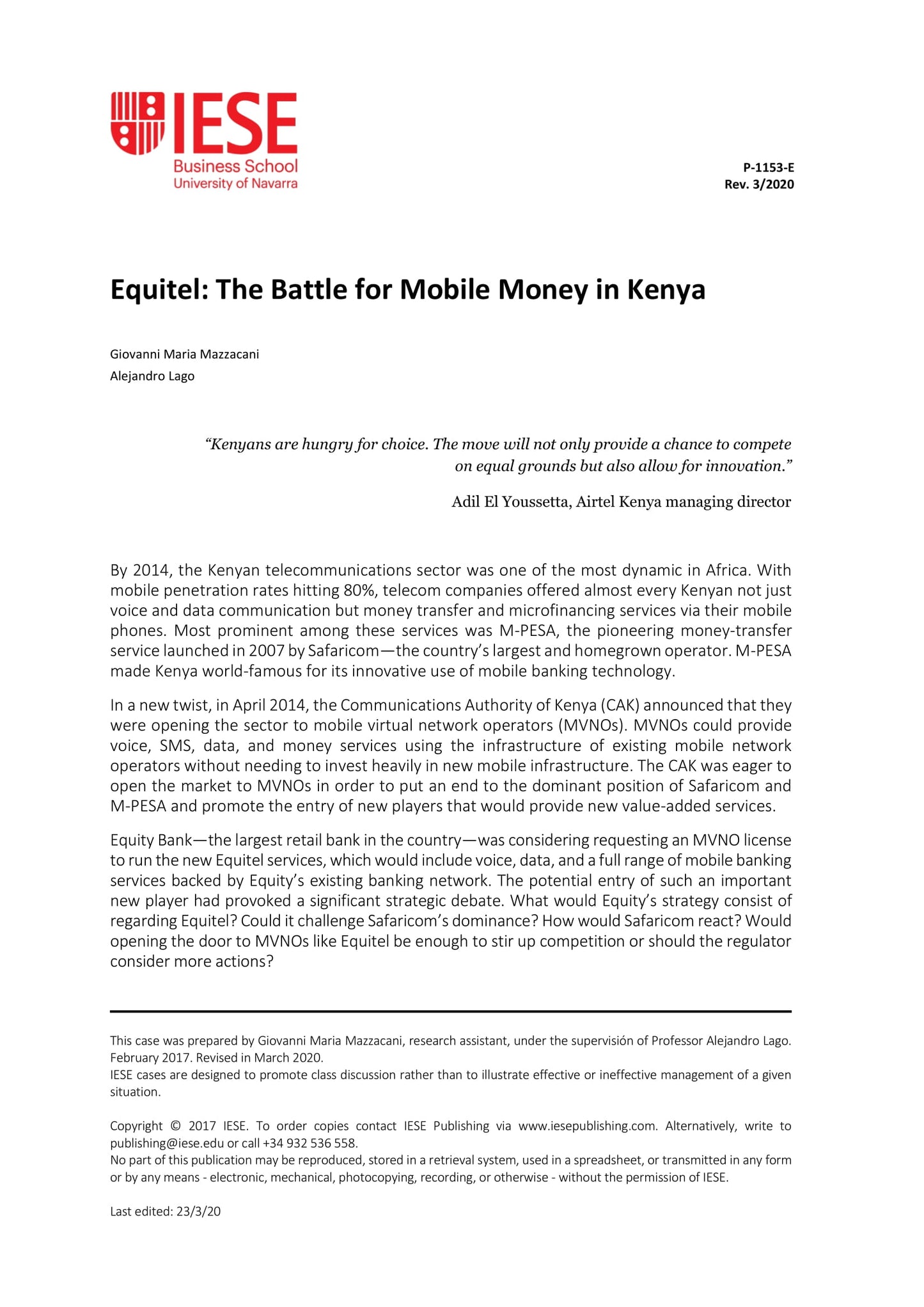Equitel: The Battle for Mobile Money in Kenya
受取状況を読み込めませんでした
The case describes the competitive situation in the telecom and mobile money industry in Kenya after 2014. It also presents the strategic options for Equity Bank, the largest retail bank in Kenya, to enter the market as a mobile virtual network operator (MVNO) and challenge the dominant position of Safaricom, the homegrown dominant operator. The entrance of Equity Bank (considered "another 500-pound gorilla") could mean a newly competitive landscape. Safaricom's success was due to several factors beyond first mover advantage. On top of technology, the company had developed a strong brand and, more importantly, a network of 80,000 agents. Customers could subscribe to their money-transfer service M-PESA, deposit and withdraw the physical money available in their accounts. The M-PESA agent network covered every corner of the country. Furthermore, Safaricom had continuously innovated and expanded the system to enable payment of utilities, payments to merchants (much like a credit card) and accessing loans via partnerships with banks. Finally, Safaricom had also developed a strong and influential relationship with Kenyan authorities and regulatory agencies-in fact, the government of Kenya partially owned Safaricom. The case study focuses on the strategic alternatives that Equity Bank (and correspondingly Airtel) could pursue to challenge Safaricom position. Discussion revolves around which customer segments to approach, the value proposition to offer and also the capabilities needed to be able to compete in these markets. It also invites the reader to reflect on what Safaricom's reaction to the entrance of such an important player could be. Finally, discussion about the role of the government and other players is also relevant.
【書誌情報】
ページ数:17ページ
サイズ:A4
商品番号:HBSP-IES766
発行日:2016/9/22
登録日:2021/2/19


